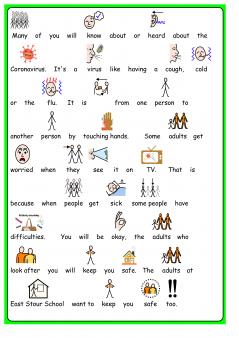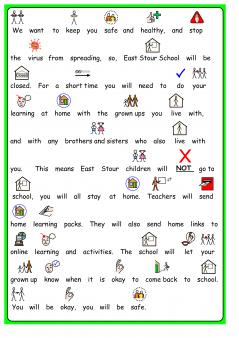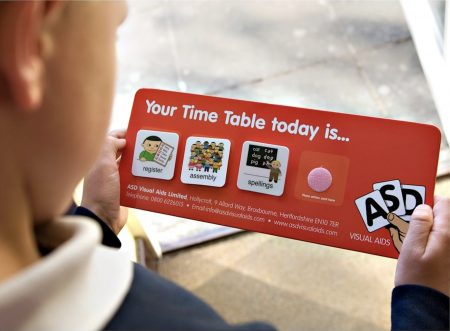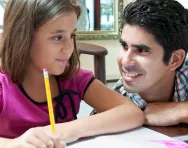TheSchoolRun.com closure date
As we informed you a few months ago, TheSchoolRun has had to make the difficult decision to close due to financial pressures and the company has now ceased trading. We had hoped to keep our content available through a partnership with another educational provider, but this provider has since withdrawn from the agreement.
As a result, we now have to permanently close TheSchoolRun.com. However, to give subscribers time to download any content they’d like to keep, we will keep the website open until 31st July 2025. After this date, the site will be taken down and there will be no further access to any resources. We strongly encourage you to download and save any resources you think you may want to use in the future.
In particular, we suggest downloading:
- Learning packs
- All the worksheets from the 11+ programme, if you are following this with your child
- Complete Learning Journey programmes (the packs below include all 40 worksheets for each programme)
You should already have received 16 primary school eBooks (worth £108.84) to download and keep. If you haven’t received these, please contact us at [email protected] before 31st July 2025, and we will send them to you.
We are very sorry that there is no way to continue offering access to resources and sincerely apologise for the inconvenience caused.
Special educational needs: navigating change

‘All children like routine and structure, but those with difficulties such as autistic spectrum disorder (ASD) depend on routine more than most,’ says Dr Hannah Bateman, consultant child and adolescent psychiatrist with specialist interest in neurodevelopmental disorders and SEN at Priory Hospital Chelmsford.
Changes of routine can be very unsettling and provoke anxiety, and sometimes circumstances can change from week to week (during the pandemic, for example, or perhaps when co-parenting), and parents of children with SEN may notice increased behavioural difficulties or emotional dysregulation.
Why SEN children find changes hard
Although school life can be tricky for children with SEN, the structure and rhythm of the normal school day often helps them feel secure.
They knew what to expect, and when. There is a predictable pattern to each day, with assemblies, classwork and break times.
But sometimes school routines change and school life can look very different from what they're used to, with new procedures and routines at school, such as different start and end times, new classroom layouts, and different playtime environments or frienships. Unsurprisingly, this can have a big emotional impact.
Home life can change, too. One or both parents work schedules could change, or they may become unemployed or self-employed, they may work more from home all of a sudden or travel away more frequently. Or perhaps there's been a change with their grandparents or other family members who they see regularly.
As children negotiate strange and unfamiliar situations, their emotions may be expressed through their behaviour.
‘The changes to lifestyle and routines are likely to cause heightened anxiety and frustration,’ Dr Bateman says. ‘This can lead to increased aggression, hyperactivity, clinginess and sleep disruption.’
Setting a routine for your SEN child
If your SEN child is one of the many who depend on routine, it’s important to set a clear structure to your days.
‘Children thrive on knowing what’s coming next so sticking to a routine is important; this prepares them for different activities in the day and also allows them to feel more in control,’ Dr Bateman explains.
A good routine will include daily activities at regular times to avoid unsettling your child. Dr Bateman suggests the following elements:
Wake up and bedtimes: it’s important to maintain sleep routines whether schools are open or closed.
‘Disruption to sleep routines will be particularly difficult for SEN children: for example, a child with ADHD taking stimulant medication needs to get up at the same time every day to take their medication, otherwise it may affect their ability to fall asleep at night,’ says Dr Bateman.
In addition, any child who’s tired is going to find it harder to cope during the day.
Food and drink: breakfast and dinner times need to be scheduled, otherwise your child may demand food constantly when they get home, or, conversely, lose all interest in food.
‘Children can be involved, to their own individual ability, in food preparation, setting the table, clearing the plates away and washing up,’ suggests Dr Bateman. Use plastic dishes and blunt cutlery if necessary.
It's a good idea to take a snack and drink with you when you pick your child up from school. Some children with SEN may find it difficult to eat at school - particularly if lunch is now eaten in their classroom rather than the dining hall. Others will be hungry and thirsty after the effort of the school day, so being able to provide food and drink quickly could prevent after-school meltdowns.
Homework and learning activities: if your child is expected to complete homework after school, or do spellings and/or times tables practice, try to do them at a fixed time each day. This will help your child know what to expect, and prevent frustration and procrastination.
Exercise and physical activity: it’s vital that children with SEN stay active. Giving your child the opportunity for some physical activity - whether that's walking home from school, playing a game in the garden or riding their bike around the local park - will help them release the energy that has built up throughout the school day.
Chill-out time: make sure your child has time for their favourite relaxing activities like computer time or watching TV: essential for helping them decompress after a day of learning that might look very different from usual.
Other ways to support your SEN child during change
As a parent, you’re the expert on your child, and know what sort of things they need to feel secure and in control.
However, it’s worth giving some extra thought to the different ways in which you can support them at this time.
Sensory spaces
‘It’s important to help your child feel safe to express their emotions safely, and develop skills in self-calming,’ Dr Bateman explains.
‘If they have sensory needs, make a “safe space” – possibly with some soft blankets and cushions in the corner of the room – where they can go to calm down and escape for a while after what might have been a stressful school day. Ensure there are plenty of sensory toys available.’
You can also ask your child's teacher what they can do if they're struggling at school. Could your child go outside with a member of staff and kick a ball against the wall, or have a corner of the school library where they could have some time out?
Visual timetables
Visual timetables are a series of pictures and words depicting each day’s activities in chronological order, including mealtimes, toileting and bedtime.
‘Many children with neurodevelopmental disorders and SEN benefit from using visual timetables to support their understanding of their daily activities,’ Dr Bateman says. They can be especially helpful in getting your child back into a school routine, or coping with changes such as a sudden school closure.
There are lots of examples online (you can buy ready-made visual timetable materials from suppliers like Sense Toys or download files of images), so you can make your own visual timetable. You could have two versions, one for weekdays and one for weekends.
Visual social stories
Social stories are series of written or drawn storyboards with associated people and emotions: for example, a picture of your child getting angry, the resulting behaviour (for example, hitting another child or turning their table over), how that makes other people feel, and what they can do instead (for example, taking five deep breaths). They were originally devised to support people with autism.


The social story about coronavirus and school closures above, created by SEN Inclusion expert Julie Steele using Communicate: In Print 2, is available to download for free from TES Resources. There's also a social story explaining how to wash hands properly. It's easy to make your own social story (for any situation your child finds difficult) in a word processing program by copying and pasting images.
‘Social stories can enable children to prepare for and tolerate events that may otherwise overwhelm them, due to high levels of anxiety,’ Dr Bateman explains.
‘They provide a narrative for the child and should be specific to their needs, using their own words or sentences.’
Rewards
Rewards are a great incentive for children to complete a task or behave in an appropriate way - for example, getting ready for school each day without a meltdown, or engaging well with homeschooling.
‘They should be non-monetary, non-food and not technology-based if possible,’ says Dr Bateman.
‘Try stickers, points, bottle tops or buttons in a pot, adding up to earn bigger rewards such as playing a board game or making playdough with a parent.’
Supporting a child who’s reluctant to learn
Schools should be aware that many children - not just those with SEN - will find it hard to maintain a learning mindset amidst the constant changes to everyday life, so don't panic if your child is kicking back against learning.
Try not to put too much pressure on your child if they're struggling with their emotions and resisting your attempts to get them to do their homework, spellings, times tables practice or reading. They're likely to be buzzing with pent-up energy and frustration, and quick to use up all their concentration and listening resources.
Look for ways around their difficulties: you could, for instance, use a games-based spelling app rather than getting them to do their spellings on paper, or read to them if they don't want to read independently.
If your child is really struggling with work, talk to their teacher or SENCO: they should be ready to support you and your child.
Looking after yourself
Parenting a child with SEN can be tough at the best of times, so if you’re finding it particularly hard during a time of transition or change, you’re not alone.
‘This is a highly unusual situation, so it’s essential to give yourself a break,’ says Dr Bateman. ‘It’s likely that you will be feeling anxious and worried, so acknowledge this and talk to others about it, seeking support from friends and family.’
There are lots of ways to ease your anxiety alongside your child’s, such as mindfulness apps, breathing exercises and online yoga like Cosmic Kids.
If the strain is getting too much, ask for help. Schools can often direct you to sources of support, from parenting classes to SEN support groups. You can also contact your GP if you’re worried about your mental health: they can offer telephone support or, if need be, an appointment in person.
‘Overall, just take care of yourselves and your family: you’re doing a great job,’ Dr Bateman says.






